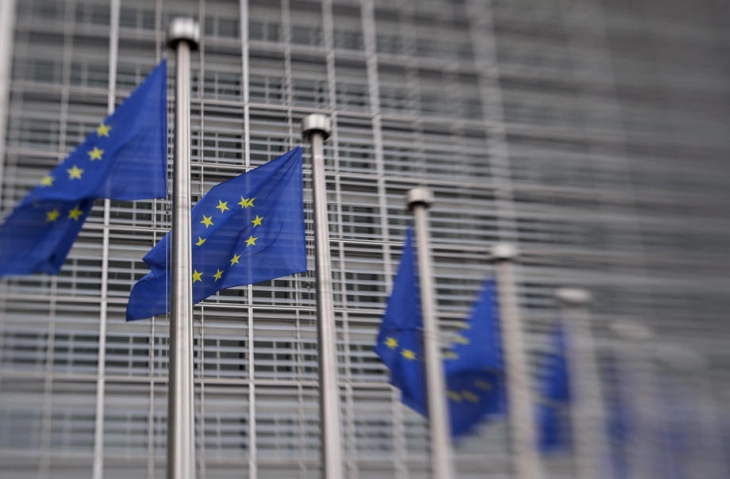EU leaders adopt Russia sanctions, hold special Ukraine crisis summit

Brussels, 23 February 2022 (dpa/MIA) - EU leaders are to meet in Brussels for a special summit on Thursday to discuss the Ukraine-Russia crisis, European Council President Charles Michel announced.
In his invitation letter on Wednesday, Michel thanked EU leaders for their recent unity "notably through the swift adoption" of a sanctions package against Moscow.
This was agreed to unanimously at a special meeting of foreign ministers in Paris on Tuesday and adopted formally the following day.
In total, the European Union has now sanctioned 555 individuals and 52 entities for violations of Ukraine's independence, but a statement issued on behalf of the member states stressed the bloc was holding further measures in reserve "in case of need."
The measures come into force after their publication in the bloc's Official Journal in the coming hours, the EU statement said.
Among those targeted are the 351 members of the Russian parliament who backed Moscow's decision to recognize the independence of Donetsk and Luhansk in eastern Ukraine, where Ukrainian government troops have been battling Russian-backed separatists for eight years now.
Russian President Vladimir Putin dramatically escalated tensions with the West by recognizing the independence of Donetsk and Luhansk on Monday.
He then ordered troops to enter, claiming they would carry out peacekeeping duties.
More specific EU sanctions apply to 27 individuals and entities including government ministers, senior military officers and high-profile business people for their role in "threatening the territorial integrity" of Ukraine, a separate EU statement said.
Russian Defence Minister Sergei Shoigu is among the senior government officials sanctioned, diplomatic sources confirmed to dpa.
The package also prevents the Russian government and Central Bank from accessing finance on the EU's capital markets.
In addition, the measures slap a trade ban between the European Union and the breakaway regions in Ukraine's eastern Donbass region, in a reaction similar to the EU's response to the Russian annexation of Crimea in 2014.







